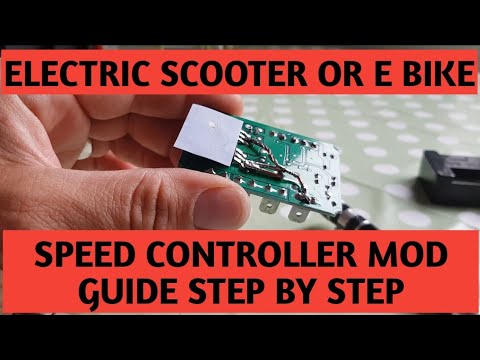Hi folks.
As a change from my normal 3d printing and CNC questions, here is something completely different ![]()
My neighbour just lost his driving license (12 points in 3 years…been there myself in my youth). He’s got himself an electric scooter which is pretty nifty. It is driven from a 24V battery, through a speed controller and to the DC drive motor.
Now, like me (my nickname is a clue) he is a bit of a speed freak and he has heard that these scooters are deliberately restricted to comply with legislation. I’ve dug around a bit and came across a video on YouTube which claims to show a simple hack for the controller.
His soldering skills are worse than mine were (before I forced myself to re-learn from scratch and do plenty of practice), but is this credible? The idea seems to be that the ‘wire’ on the board is the key and that by bridging it with simple multistrand copper you can ‘confuse’ the logic, as well as allowing more current to flow. This allows a higher voltage battery to be fitted and would presumably also bypass any limiting
I don’t know enough electronics to interpret the board, and I don’t know what the logic chip is doing, so I’m intrigued but rather sceptical.

